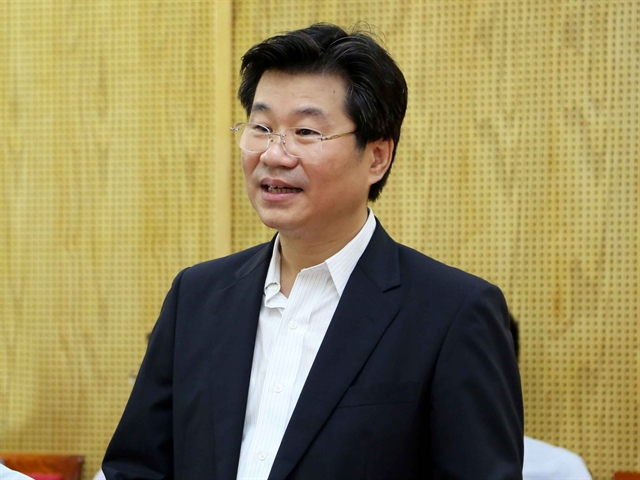Đỗ Nhất Hoàng, director-general of the Foreign Investment Agency under the Ministry of Planning and Investment, spoke to Vietnam News Agency on the factors that make Việt Nam an attractive place for foreign investors

Do Nhat Hoang, director-general of the Foreign Investment Agency under the Ministry of Planning and Investment, spoke to Vietnam News Agency on the factors that make Viet Nam an attractive place for foreign investors.
How has the COVID-19 pandemic impacted foreign direct investment (FDI) in Viet Nam?
The COVID-19 pandemic has seriously impacted the world economy, including Viet Nam.
However, with efforts made by Vietnamese enterprises coupled with the timely support from the Government, ministries and local authorities nationwide, Vietnamese enterprises, including FDI enterprises, have overcome challenges to keep their production on course.
In the first five months of 2020, total foreign investment in the country was reported at US$13.8 billion, down about 17 per cent compared with the same period last year. Meanwhile, in the first five months of 2020, foreign direct investment in Viet Nam was at about $6.7 billion, a drop of about 8.2 per cent compared with the same period last year.
However, compared with other countries, such a drop was acceptable. In the same period under review, new total capital registration scored an increase of 32 per cent while the amount of capital registration of enterprises saw an increase of 12 per cent. These figures are a solid foundation showing Viet Nam has remained an attractive and safe place for enterprises to invest in.
I also believe that when Viet Nam decides to resume international flights more foreign investors will return to the country.
It is reported that there is a tendency to divert foreign investment into India and other ASEAN nations post-COVID-19. Do you have any comment on that?
It is high time for Viet Nam to talk about the investment restructuring of enterprises. In the past many years, foreign economic groups have restructured their investment to maximise the effectiveness of their investment.
About 7-8 years ago, many foreign economic groups started to restructure their investment. At that time we already heard about their strategy China+1 and Thailand+1. Viet Nam then started to negotiate for the Comprehensive and Progressive Agreement for Trans-Pacific Partnership (CPTPP). As a result, a flow of investment capital was switched to Viet Nam.
Adding to that the trade war between international major economies became a driving force for pushing world economic restructuring to avoid high commercial tariffs levied by the US.
And now, the COVID-19 has seriously impacted the global supply chain on all economic groups, regardless of nationality. This has opened up an opportunity for many countries, including Viet Nam.
What do you think about the advantages Viet Nam has enjoyed in that trade war compared with other ASEAN countries?
In the ASEAN bloc, Viet Nam has been an attractive investment place for many investors. Many investors have said Viet Nam is a country with a stable political system with fast and sustainable economic development for many years and with abundant human resources with a big market and many more advantages compared to other countries. What’s more important, Viet Nam is located in a strategic position in the centre of Southeast Asia.
Another important point is that Viet Nam has a good investment environment and at the recent sitting of the National Assembly, quite a few laws, including the revised Investment Law, the revised Enterprises Law and the Law on Public and Private Investment, were discussed and adopted. When these laws come into force, Viet Nam will become a more attractive destination for many foreign investors.
What measures should Viet Nam adopt to attract more foreign investors?
It's time for Vietnamese enterprises to restructure to attract more foreign investors to Viet Nam, particularly by training workers with high skills and the country’s investment policies.
The Ministry of Planning and Investment has proposed three groups of measures to attract more foreign investment.
First, there are solutions relating to foreign investment promotion
Second, policies to attract foreign investment with good screening, particularly projects with high added value and posing big impacts on the country’s socio-economic development.
Finally, to revise the current Investment Law and related laws to attract more foreign investors.
Don’t you think the recent ratification of the European Union Viet Nam Free Trade Agreement and the European-Viet Nam Investment Protection Agreement will become a driving force to attract more foreign investors into Viet Nam?
At present, investment from EU countries into Viet Nam is about $25 billion. Though the figure is not really high, the potential for future economic development is big.
We are confident the special priorities from both the EVFTA and EVIPA and Viet Nam’s commitment to reform its investment environment will open up a new page for European investors to come to Viet Nam. — VNS





